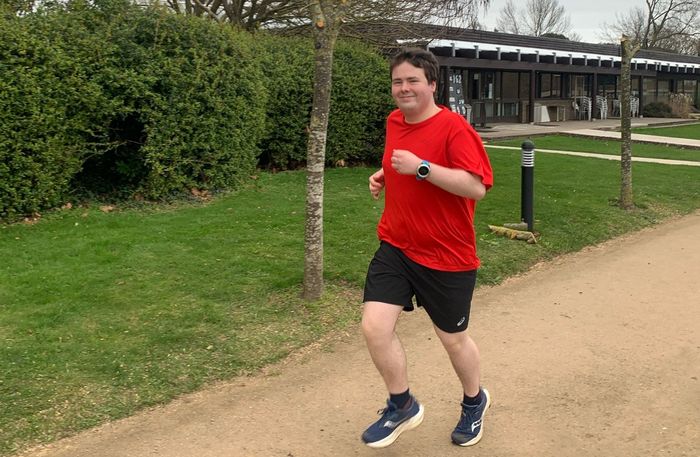Olympian Louise Shanahan on what running offers her
Bea Wood catches up with Olympian and Cambridge alumna Louise Shanahan ahead of an Olympic year

Louise Shanahan is an Irish Olympic 800m runner, multiple-time Irish champion and Cambridge PhD alumna who is now based in Belfast ahead of a significant sporting year. While in Cambridge, she ran with the Hare and Hounds and has recently finished her PhD, allowing her to devote herself to elite athletics full time.
I began our interview by going back in time and asking Louise about her earliest days within the sport. Like many professional athletes, her induction to running was modestly founded in childhood school-based competitiveness. It was a local schools race in Cork that grasped the attention of the then nine-year-old.
She said that “I felt like running was my sport” from a young age. She was desperate to win the school competition but would regularly get knocked out in the early rounds. At the age of nine, however, she finally broke through the ranks, only to miss out on further rounds of the competition for a family holiday (the only time that any such inconvenience would be able to stand in the way of the fiery athlete’s competitive tenacity). Attending the local athletics club was her dad’s solution to her “furious” response to missing the competition. And, as they say, the rest is history.
The life of an athlete can seem ascetic and dull to some, so I asked Louise what it is that continues to motivate and inspire her today. Her answer retains the very core of sporting ambition: “I just really want to see how fast I can run, how hard I can push myself,” which is testament to her authentic, unchanged sense of excitement as to the limits of the human body.
Shanahan talked about the “measured goals” which running offers. She compared the assignments, routine and schedule of school, exams and grades to the sport’s nuclei of constancy, accomplishment, “constant feedback” and control. “I know when my head hits the pillow when I go to sleep that I’ve achieved something that day.” Racing is the culmination of any athlete’s efforts but the highs of victories are only opportunities that arise several times a year. Instead, the “small success” of each training session and run that gets ticked off endures as the overwhelming motivational force.
I questioned her on her sporting role models and Irish middle distance runners Sonia O’Sullivan and Ciara Mageean were the immediate replies: O’Sullivan the childhood heroine of school projects and scrapbooks, and Mageean the idol-turned-competitor-turned-friend. Surely it must be surreal to have a former role model transfigured into a friend and training partner? I asked Shanahan what stands out about the subsequent familiarisation of those we put on pedestals and her answer was their “normality”. After all, “they have no more hours in the day than anyone else”. The truth is brought home: they are “normal people”, admired hugely and “incredible”, but “not superhuman”. Their accomplishments, she insists, once brought close into a sphere of interaction, swiftly start to feel reachable: “If they’re good enough to do it, then I’m good enough to do it.”
After nearly two decades within the sport, Louise strikingly claims that the “lows of elite athletics are incomparable to the highs”. She admits: “Nothing can affect my emotions the way running does.” Following a fracture in 2015, she was “absolutely distraught” – six months of no exercise lead to overwhelming excess energy and “frustration” – “stepping back” and simply resting being the hardest obstacle to surmount. Her most recent lesson within the sport has been the revelation that it’s actually “the things you don’t do that make you better”. Taking the time to listen to your body and properly recover, in a way Cambridge terms don’t allow, and her move to a professional, full-time running career has enabled such a crucial change to take place.
Ultimately, Louise’s biggest advice can be summed up simply: “Not to give up, to keep working away at something,” and that “any one run is unimportant”. It is the stacked-up years of turning up to working hard that count – an attitude that can be transposed into “any area of life”.
 News / Emma May Ball U-turns on ‘accessible’ half-shift staffing28 April 2024
News / Emma May Ball U-turns on ‘accessible’ half-shift staffing28 April 2024 News / Students protest Trinity open day over Israel ties27 April 2024
News / Students protest Trinity open day over Israel ties27 April 2024 News / Rosie Freeman resigns as SU Women’s Officer29 April 2024
News / Rosie Freeman resigns as SU Women’s Officer29 April 2024 News / Foreign states could be stealing Cambridge research, warns MI528 April 2024
News / Foreign states could be stealing Cambridge research, warns MI528 April 2024 Comment / Why we should all work a part-time job26 April 2024
Comment / Why we should all work a part-time job26 April 2024






